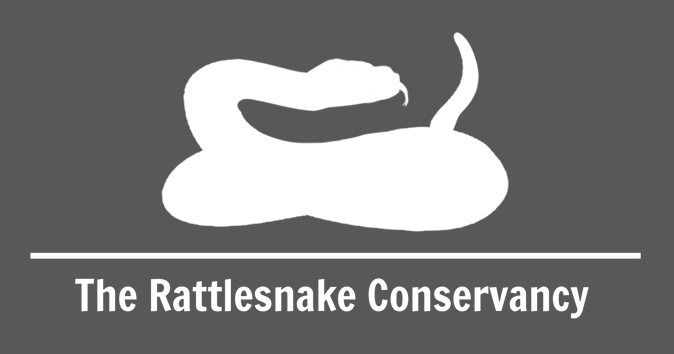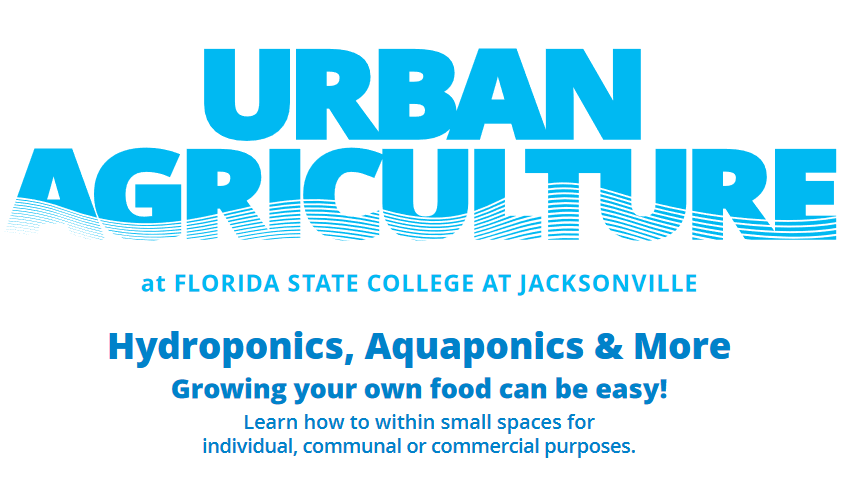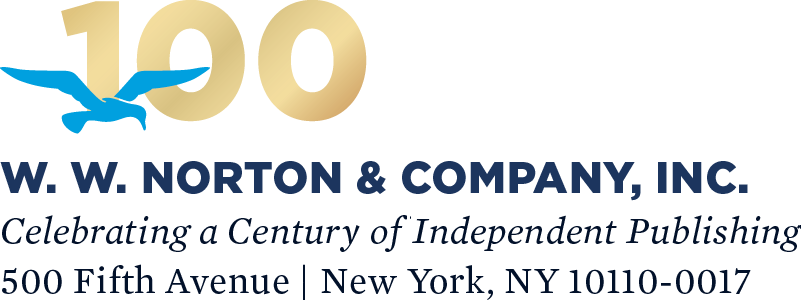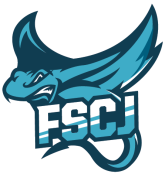Archive:
"From Root2STEM" Student Engagement Science Symposium 2023
Overview
Time: Friday, October 27, 2023, 8:00 A.M. - 1:30 P.M.
Location: FSCJ Advanced Technology Center (ATC)
Our theme this year is “Student Engagement” as we recognize the need to more effectively prepare our students to engage with challenging scientific issues. Session topics will span a broad range of themes, including: course methodology, innovative technologies, student research projects, and teaching methods for difficult topics. Please click here to register on Eventbrite and see the detailed session program below to register for PD credit for individual sessions. *Although the Symposium will primarily be face-to-face, some sessions will also be offered virtually.
FSCJ would like to thank the following sponsors for their support:




Program
- Agenda
-
Breakfast / Registration,
8:00 a.m. - 8:30 a.m. -
Welcome / Orientation,
8:30 a.m. - 8:40 a.m. -
Session 1,
8:45 a.m. - 9:15 a.m. -
Session 2,
9:25 a.m. - 9:55 a.m. -
Session 3,
10:05 a.m. - 10:50 p.m. -
Session 4,
11:00 a.m. - 11:30 p.m. -
Session 5,
11:40 a.m. - 12:25 p.m. -
Lunch/Table Talks,
12:30 p.m. - 1:30 p.m. - Helpful Tips for Success
-
Agenda
Friday, October 27, 2023
FSCJ Advanced Technology Center (ATC), 401 W. State Street, Jacksonville, FL 32202Special note: Internal faculty and staff should register using the FSCJ Registration links included in the Course Descriptions. External attendees should use the WebEx links listed in the Course Descriptions to log in before the courses begin. 8:00 A.M. - 8:30 A.M. Breakfast/Registration Building T, Room T-141 8:30 A.M. - 8:40 A.M. Welcome/Orientation Building T, Room T-141 8:45 A.M. - 9:15 A.M. Session 1 Building T, Various rooms 9:25 A.M. - 9:55 A.M. Session 2 Building T, Various rooms 10:05 A.M. - 10:50 A.M. Session 3 Building T, Various rooms 11:00 A.M. - 11:30 P.M. Session 4 Building T, Various rooms 11:40 A.M. - 12:25 P.M. Session 5 Building T, Various rooms 12:30 P.M. - 1:30 P.M. Lunch/Table Talks Building T, Room T-141 -
Breakfast / Registration,
8:00 a.m. - 8:30 a.m.Both breakfast and registration will take place at:
FSCJ Advanced Technology Center
401 W. State Street
Jacksonville, FL 32202
Building T, Room T-141 -
Welcome / Orientation,
8:30 a.m. - 8:40 a.m.The Welcome and Orientation portion will take place at:
FSCJ Advanced Technology Center
401 W. State Street
Jacksonville, FL 32202
Building T, Room T-141 -
Session 1,
8:45 a.m. - 9:15 a.m.Agricultural Aquaponics and Hydroponics Demonstration Presentation
Lance Culver, Florida State College at Jacksonville
Target Audience: K-8; 9-12
The Aquaponics and Hydroponics Demonstration Presentation will showcase the benefits and differences between these two growing techniques. Aquaponics uses fish to provide nutrients for plants, while hydroponics relies on nutrient solutions. The presenter will demonstrate the ease of setting up and maintaining these systems, as well as the ability to grow a variety of plants in a small space. Additionally, the audience will learn about the sustainability benefits of these methods, including the ability to conserve water and reduce waste. Overall, the presentation will highlight the potential of aquaponics and hydroponics to revolutionize the way we grow food in the future.
PD 1938
8:45 a.m. – 9:15 a.m.
Demonstration on-site (20 minutes + 10 minute Q&A)
Room T-241
Register NowCitizen science in a non-majors biology class
Bryan Spohn, Florida State College at Jacksonville
Target Audience: 9-12; Undergraduate Science
Citizen science is a way to engage students in the scientific method, to engage them in scientific writing, and produce results that are usable by scientists. My students completed 11 citizen science projects in a non-majors biology class. Some of them used a biocube from the Smithsonian Institution in Washington, DC. Most of the students enjoyed the project, which was done at two different campuses at FSCJ. Students wrote a final scientific report in lieu of the final exam.
PD 1944
8:45 a.m. – 9:15 a.m.
Live Online Presentation (20 minutes + 10 minute Q&A)
Room T-140
Register Now
Webex Link for Non-FSCJ EmployeesIntegrate Music into any field and experience the Synapse Connections!
Aileen Hale, Florida State College at Jacksonville
Target Audience: All
Do you want to engage your students? Liven up your classroom? Have you thought of ways to incorporate music into your teaching? This presentation shares numerous ways to integrate music into your field and experience the synapse connections with your students! As educators focused on our specific fields, we may overlook the power of music to teach a concept, to set the stage, and to provide an ambiance for learning. Join us as we delve into ways music can facilitate learning of challenging concepts and lower students' affective filters for enhanced learning.
PD 1935
8:45 a.m. – 9:15 a.m.
Live Online Presentation (20 minutes + 10 minute Q&A)
Room T-241A
Register Now
WebEx Link for Non-FSCJ EmployeesUtilizing Artificial Intelligence Tools to Develop Lab Activities in Clinical or Lab Based Courses
Kimberly Fahlgren, Florida State College at Jacksonville
Target Audience: All
Artificial intelligence (AI) has become an increasingly powerful tool in various fields, including education. In this workshop, we will explore how AI tools can be utilized to develop lab activities in clinical or lab-based courses. By harnessing the capabilities of AI, educators can enhance student engagement, promote critical thinking, and facilitate a more dynamic learning experience. Furthermore, the workshop will provide example demonstrations to participants on navigating AI tools for developing creative and meaningful lab activities. By embracing AI technology, educators can transform the learning experience and empower students with the skills and knowledge required to thrive in their respective fields.
PD 1960
8:45 a.m. – 9:15 a.m.
Demonstration on-site (20 minutes + 10 minute Q&A)
Room T-234
Register Now -
Session 2,
9:25 a.m. - 9:55 a.m.How to implement STREAM in Diverse Children's Literature- A hands-on approach to Kidlit and STEM
Silvana Spence, Duval County Schools and The STEAM SQUAD
Target Audience: K-8; Undergraduate Science
This demonstration session aims to demonstrate how STEAM experiences can be implemented in Children's literature cross-curriculum. Using various recyclable and electronic resources, participants will experience the creative design of building different hands-on activities to match the book and, this way, engage students in critical thinking.
PD 1939
9:25 a.m. – 9:55 a.m.
Demonstration on-site (20 minutes + 10 minute Q&A)
Room T-241
Register NowMaking Chemistry More Concrete – pH and local natural indicators
Terence Cavanaugh, University of North Florida
Target Audience: All
One of the issues with much of science is how abstract it is to students. Often not only is the concept abstract, even the things that are used in the lab don’t come from here or have never been seen locally by our students. This presentation will present a method that makes the concepts of chemistry more real to the students while teaching about pH, but not using a universal indicator like phenylalanine, but instead using materials found in grocery stores and the flowers found around the home as natural indicators that can be easily made and applied.
PD 1971
9:25 a.m. – 9:55 a.m.
Demonstration on-site (20 minutes + 10 minute Q&A)
Room T-241A
Register NowOnline Dimensional Analysis Calculator
John Taylor, Florida State College at Jacksonville
Target Audience: 9-12; Undergraduate Science
Chemistry word problems sometimes may be difficult. There are several methods for solving chemical word problems. A powerful technique for solving problems is called unit analysis method, sometimes referred to as dimensional analysis method, or factor label method of problem solving. Unit analysis cannot solve every chemistry word problem, but it is very effective for the problems we encounter in beginning and college chemistry. Students fall into three categories, maybe four, when trying to solve simple word problems. Some are number jugglers. Some are formula freaks. Others understand how to word juggle (Dimensional Analysis), while a fourth just becomes frustrated and will do anything to avoid a word problem. The fourth just freezes at a word problem and just walks away. Dimensional Analysis is taught in all beginning level chemistry courses. In Nursing school it is used during pharmacology. The presenter has developed an interactive dimensional analysis calculator and will demonstrate this calculator during the science symposium. The calculator web site is open source and may be found at: http://www.lsua.info/chem1001/dimanalysis/unitanalysisIntro.htm
PD 1961
9:25 a.m. – 9:55 a.m.
Demonstration on-site (20 minutes + 10 minute Q&A)
Room T-234
Register NowS-5's Experience at the S-STEM Scholar's Meeting
Chris Lee and Students, Florida State College at Jacksonville
Target Audience: Undergraduate Science
FSCJ Students Abby Bowden, Sidney Miller, Cameron Huffman, and Hamalton Wilson and Professor Chris Lee will attend the inaugural S-STEM Scholars Meeting in Washington, D.C., September 14-16, 2023, hosted by the American Association for the Advancement of Science and the National Science Foundation's (NSF) S-STEM Resource and Evaluation Center. About 1,000 students (community college through university) and 100 PIs/Co-PIs from NSF S-STEM projects will meet for professional development, networking, presentations, workshops, employment opportunities and more. The FSCJ delegation will share their experience at this professional conference to motivate other students to attend similar events and to persevere in their studies.
PD 1945
9:25 a.m. – 9:55 a.m.
Live Online Presentation (20 minutes + 10 minute Q&A)
Room T-140
Register Now
Webex Link for Non-FSCJ Employees -
Session 3,
10:05 a.m. - 10:50 p.m.Radiotracking Eastern Diamondback Rattlesnakes on a Barrier Island: Transforming the Data Into Immersive Education Programs
Tiffany Bright, The Rattlesnake Conservancy
Target Audience: K-8; 9-12
The interpretive process of creating an immersive, educational activity using raw data collected by biologists on Jekyll island - one of Georgia's protected barrier islands, as a part of the Jekyll Island Authority Conservation Department's ongoing research into one of the most misunderstood animals: the eastern diamondback rattlesnake. In a classroom or at home, the interpretive methods we used effectively communicate the science in a way that give children the opportunity to track the real movements of both male and female eastern diamondback rattlesnakes over a one year period. It's designed to provide a deeper understanding of their behavior and habitat while using storytelling and inspiring community participation in conservation. The methods we used for creating this activity can be adapted and applied to communicate scientific records in a way that encourages a sense of ownership in all habitats and species in children and the larger community.
PD 1940
10:05 a.m. – 10:50 a.m.
Workshop (45 minutes) on-site
Room T-241
Register NowRevitalizing Classroom Discussion with Packback: Leveraging AI Technology for Active Learning in STEM
Kathryn Stegeman, Packback
Target Audience: 9-12; Undergraduate Science
Facilitating STEM discussion (online or in-person) doesn’t have to be complicated, time-consuming, or difficult to grade. By using Packback Questions, faculty are able to build community and facilitate deeper learning through its scalable online discussion forum. Students receive real-time feedback from Instructional AI, which coaches them to ask high-quality, open-ended questions and have more thorough peer-to-peer discourse, all while thinking critically about content and engaging in real world application. Attendees of this workshop will see live examples of Packback communities and how it successfully supports all modalities and course sizes, especially within STEM.
PD 1946
10:05 a.m. – 10:50 a.m.
Live Online Presentation (20 minutes + 10 minute Q&A)
Room T-140
Register Now
Webex Link for Non-FSCJ EmployeesSeed starting strategies for K-12 gardening. Even the mighty oak started out as a tiny seed!
Dianne Fair, Florida State College at Jacksonville
Target Audience: All
There are many seed starting media and strategies available today for the home and school gardener. In this hands-on workshop, participants will be able to try out several different ways to start seeds for fruit, vegetable, herb and flower gardens. There will also be an opportunity to brainstorm "gardening from the recycle bin", giving us all ideas for reducing waste, re-using containers, and re-purposing plastic/glass/cardboard items from our recycling bin; biodegradable items such as cardboard tubes make great seed pots, and families can make great strides toward their own food production and food sharing.
PD 1962
10:05 a.m. – 10:50 a.m.
Workshop (45 minutes) on-site
Room T-234
Register NowUDL Makeover in my Biology course
Indrani Sindhuvalli, Florida State College at Jacksonville
Target Audience: Undergraduate Science
In this workshop, I will share my experience of incorporating Universal Design in Learning (UDL) principles in my majors Biology course. My course set up includes intentional, flexible options for all students to use, ensures student access to resources from the start of a lesson, and my students build upon the foundational knowledge and internalize their own learning for successful completion of core course competencies.
PD 1934
10:05 a.m. – 10:50 a.m.
Workshop (45 minutes) on-site
Room T-241A
Register Now -
Session 4,
11:00 a.m. - 11:30 p.m.AI and ChatGPT to Enhance the Learning and Teaching Experience
Kyle Register, Florida State College at Jacksonville
Target Audience: 9-12; Undergraduate Science
Artificial intelligence engines like ChatGPT can be a useful tool to enhance our teaching of science topics. This session will be an interactive session to examine practical examples of how students and faculty can embrace this new technology to increase both student learning and student integrity.
PD 1941
11:00 a.m. – 11:30 a.m.
Demonstration on-site (20 minutes + 10 minute Q&A)
Room T-241
Register NowDiplomacy Lab: Bringing Real-World Projects from the U.S. State Department into the Classroom
Lourdes Norman-McKay, Florida State College at Jacksonville
Target Audience: 9-12; Undergraduate Science
The U.S. State Department established the Diplomacy Lab program in 2003 to engage college students and faculty in “course-sourced" projects that address foreign policy challenges. The program underscores the Department’s commitment to engage the American people in the work of the State Department, and the need to broaden the Department’s research base in response to a proliferation of complex global challenges. To learn more about how you and your students can engage in real-world projects that support American diplomacy and outreach, join FSCJ Professor and State Department Special Policy Advisor, Dr. Lourdes Norman-McKay, in this information session. [Disclaimer: Although key projects directly link to collegiate courses, there is space to infuse other sectors/professionals within public education.]
PD 1932
11:00 a.m. – 11:30 a.m.
Demonstration on-site (20 minutes + 10 minute Q&A)
Room T-241A
Register NowNovel use of TED talks to stimulate student inquiry and increase engagement
Monica Parker and Maria Oehler, Florida State College at Jacksonville
Target Audience: 9-12; Undergraduate Science
The existence of a wide array of science topics in non-majors biology classes means that some topics are only covered at a surface level. Students with an interest in topics that have been consigned to the surface category, are often educationally side-lined. To recapture these students, an educational module was developed involving contributions from more than 30 experts across a range of Natural and Physical Science Fields. Students were given their choice of expert. Following this exposure, students prepared, presented, and discussed summary presentations. TED Talks bring experts into the classroom, elevates class discussions, and increases engagement.
PD 1947
11:00 a.m. – 11:30 a.m.
Live Online Presentation (20 minutes + 10 minute Q&A)
Room T-140
Register Now
Webex Link for Non-FSCJ Employees -
Session 5,
11:40 a.m. - 12:25 p.m.Labster Presentation for FSCJ Science and Nursing
Paul Sheppard, Labster
Target Audience: 9-12; Undergraduate Science
Labster is the world’s leading platform for virtual labs and science simulations. Students’ learning outcomes improve with Labster because we engage them with game-based elements that inspire them to explore science. Students then apply their knowledge to solve a real world problem within the context of a story. Inside the 3D environment of an immersive simulation, students master curriculum-aligned theory, interact with advanced equipment, learn techniques and perform experiments. The virtual science labs have been used by California State University, Harvard, Gwinnett Technical College, MIT, Exeter University, University of New Haven, Stanford, University of New England, Trinity College, University of Hong Kong and Berkeley, among others internationally.
PD 1948
11:40 a.m. – 12:10 p.m.
Demonstration on-site (20 minutes + 10 minute Q&A)
Room T-140
Register NowNavigating through STEM
LaTrice Williams and Jeremiah Williams, Duval County Schools
Target Audience: K-8
As you embark on your journey toward success in Science, Technology, Engineering, and Mathematics (STEM), it is essential to understand the path ahead clearly. Whether you are just starting out or already well on your way, navigating the complexities of STEM can be daunting. However, with the proper guidance and resources, you can achieve your goals and make a meaningful contribution to the world of STEM. Therefore, it is crucial to identify the necessary tools and strategies that will help you succeed in your chosen field. From education and training to networking and mentorship, there are many ways to navigate your path in STEM and reach your full potential. With the right mindset and a commitment to lifelong learning, you can overcome any obstacle and achieve your dreams. So, take the first step today and begin your journey toward success in STEM.
PD 1942
11:40 a.m. – 12:25 p.m.
Pre-recorded Video Presentation (30 minutes)
Room T-241
Register NowSeed starting strategies for K-12 gardening. Even the mighty oak started out as a tiny seed!
Dianne Fair, Florida State College at Jacksonville
Target Audience: All
There are many seed starting media and strategies available today for the home and school gardener. In this hands-on workshop, participants will be able to try out several different ways to start seeds for fruit, vegetable, herb and flower gardens. There will also be an opportunity to brainstorm "gardening from the recycle bin", giving us all ideas for reducing waste, re-using containers, and re-purposing plastic/glass/cardboard items from our recycling bin; biodegradable items such as cardboard tubes make great seed pots, and families can make great strides toward their own food production and food sharing.
PD 1962
11:40 a.m. – 12:25 p.m.
Workshop (45 minutes) on-site
Room T-234
Register NowTeaching With Tree Cookies: a Project Learning Tree activity
Janet Schnauss, Duval County Public Schools
Target Audience: K-8; 9-12
Tree cookies are slices of tree core that can be used to teach many science concepts. During this session you will be given a tree cookie and we will discuss how this can be used to teach the parts of a plant, age of a tree, how tree growth can be affected by a variety of limiting factors, and how tree core samples can be used to look at our local climate. This is an activity that can be found in the Project Learning Tree Explore Your Environment activity guide. All participants will receive a copy of the activity and a tree cookie to keep.
PD 1933
11:40 a.m. – 12:25 p.m.
Workshop (45 minutes) on-site
Room T-241A
Register Now -
Lunch/Table Talks,
12:30 p.m. - 1:30 p.m.The Lunch/Table Talks portion will take place at:
FSCJ Advanced Technology Center
401 W. State Street
Jacksonville, FL 32202
Building T, Room T-141 -
Helpful Tips for Success
- Register by clicking the “Register Now” links in this program to ensure your access in myLearning.
- When it is time for the session, please log into myLearning (located at bridge.fscj.edu or under Quick Links tile in myFSCJ Employee Self Service), then scroll down to the session on your myLearning page and click "Join Session."
- Choosing “computer audio” will give you the best experience in the course.
- If you experience any technical difficulties during the presentation, simply refresh your browser. (Don’t worry, you won’t be logged out of the course).
- Enjoy and engage with your class!
If you have any questions about this event, please reach out to your campus Faculty Development Specialist or email us at This email address is being protected from spambots. You need JavaScript enabled to view it..
SACSCOC
Florida State College at Jacksonville is accredited by the Southern Association of Colleges and Schools Commission on Colleges (SACSCOC) to award the baccalaureate and associate degree. Contact the Commission on Colleges at 1866 Southern Lane, Decatur, Georgia 30033-4097, or call (404) 679-4500 for questions about the accreditation of Florida State College at Jacksonville. The Commission is to be contacted only if there is evidence that appears to support an institution's significant non-compliance with a requirement or standard.
◈ 501 West State Street, Jacksonville, FL 32202 - © FSCJ - All Rights Reserved
